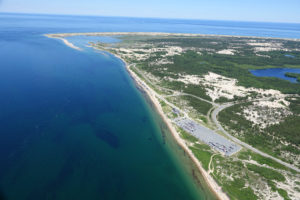BARNSTABLE – The Cape Cod Commission has released a new study relating a lack of housing on the Cape to an increase in cost-burdened households.
The study projects ten years out and indicates that in the absence of changes in the housing supply that better reflect life stage preferences moving forward, then the region can expect more than half of year-round households to see cost burdens by as early as 2025.
In order to put the report together, researchers from two Vermont based companies reviewed gap analysis between what residents of the region can afford and what is available on the market.
In the report housing stress is defined as existing households who spend 30 percent or more of their monthly income on housing costs, an indication that they are likely to become burdened by home costs.
According to the report, low wage earners are not the only ones who are feeling the crunch of housing costs. By 2025, in fact the largest increase in burdened households will be for those earning between 100 percent and 120 percent of the area’s median income.
Among the culprits named in the report is the high demand for seasonal units on Cape coupled with what is termed the “monoculture” of single-family homes, which constrains hosing options.
Heather Harper, an affordable housing specialist with the commission explained the term, “That [monoculture] really was a term that was coined by our former economist here at the Cape Cod Commission and it was really drawing attention to the lack of diversity in the housing stock.”
She says that that limits options for those who may prefer another style outside of the standard, single-family that is by far the most available on Cape.
The study, which addressed both the Cape as a whole and when broken into the Upper, Mid, Lower and Outer Cape as well as each of the 15 Cape towns individually. This deeper dive shows that the greatest changes will be in towns that start with a better balance between wages and home prices.
“We recommend that Cape Codder’s plan for life stages through better urban design and consider planning for a housing product that doesn’t exist,” said Michael Crane, President, Crane Associates. “Smaller, Cape Cod ‘style’ units, ideally in community centers, walkable to amenities, with storage, are needed for downsizing seniors and active young people.”
The study makes a number of recommendations for the Commission to consider as it develops new housing policies. According to the agency, these will be considered in the broader context of the Regional Policy Plan update to align all regional policies and planning efforts.
By DAVID BEATTY, CapeCod.com NewsCenter

























